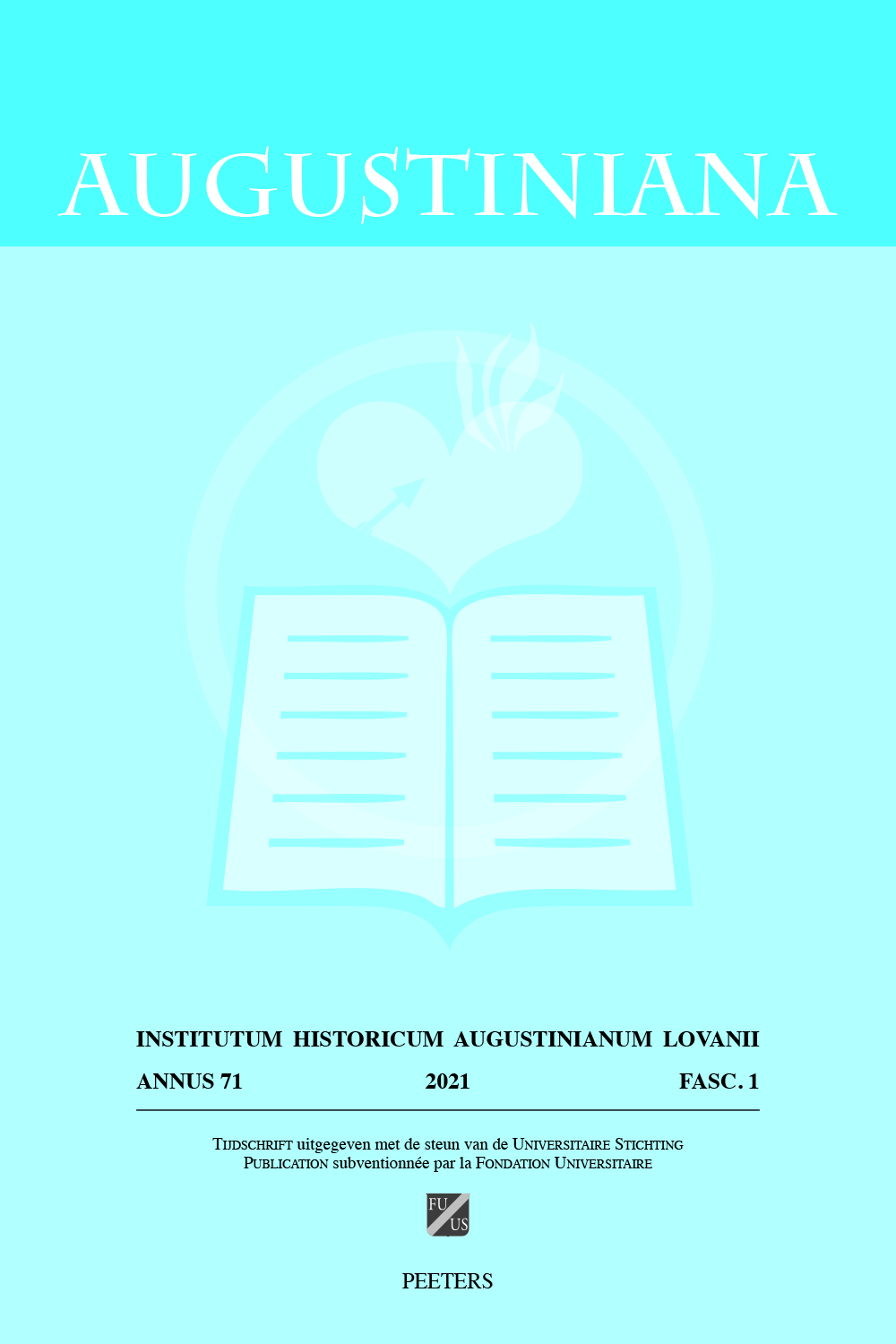 previous article in this issue previous article in this issue | next article in this issue  |

Preview first page |
Document Details : Title: L'identité sans structure, le dynamisme de la mémoire Author(s): SMALBRUGGE, Matthias Journal: Augustiniana Volume: 64 Issue: 1-4 Date: 2014 Pages: 11-24 DOI: 10.2143/AUG.64.1.3080605 Abstract : In this article, we try to compare some elements of the Augustinian theory of memory with the concept Petrarch used. We do so because Petrarch used the Augustinian concept of memory and made Augustine his main source in thinking about the structure of our memory. For Augustine then, our memory may, in the first place, seem the place where we meet ourselves. But in the end it is the place where we lose ourselves. It is the domain of pure subjectivity and the only way out is the fact that our deepest memory is God. He is the one that turns our subjective memory into an objective truth. That is also the reason Augustine can integrate the notion of memory into the Trinitarian doctrine. Memory tells us about the domain between being an non being and shows us the necessity of recreation. Petrarch seems to follow this scheme and he also stresses the loss of our identity when it comes to our memory. But although he completely adapts the Augustinian scheme, he uses it in the opposite way. The structure of what memory is, remains the same: it is the loss of identity. It is a mirror without end. But this loss also shows us the ideal of what we can achieve. Memory is not there to make us find God, it is there to rediscover the ideal man. No need of a Trinitarian doctrine, just the necessity of a stoic ideal of what man can be when he strives for a better life. |
|


